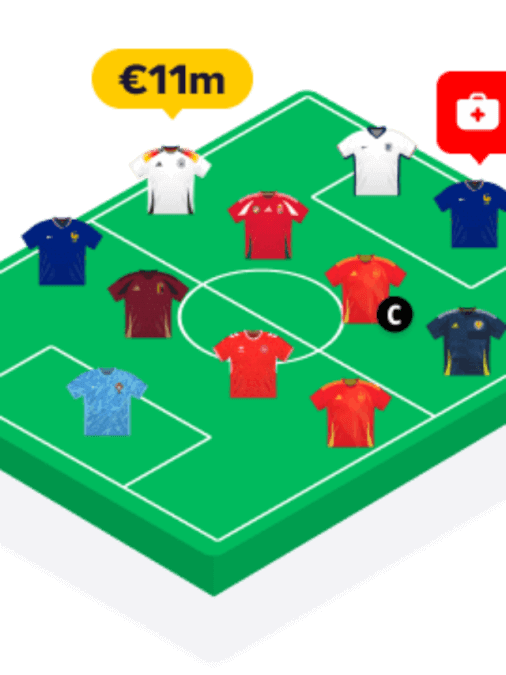For young footballers, nutrition is crucial to support their growing bodies and athletic performance. However, the temptation of sugary snacks can often challenge even the most dedicated athletes.
While it’s unrealistic to completely eliminate treats from a child’s diet, managing indulgences and finding healthier alternatives is key to maintaining optimal performance on the pitch.
In this article, we’ll explore how young footballers and their parents can balance the occasional treat without compromising training, as well as offer some delicious, nutritious alternatives.
Why Managing Sweets Matters for Young Athletes
Excessive sugar consumption can have significant effects on a young athlete’s energy levels, focus, and performance.
Sugary foods often provide a quick spike in energy followed by a rapid crash, leaving players feeling fatigued and less focused during practice or matches.
Over time, poor dietary habits, especially involving too much sugar, can interfere with long-term fitness goals and increase the risk of injuries.
A well-balanced diet, on the other hand, helps young footballers stay energized and recover faster from both training and games.
Proper nutrition is especially crucial for maintaining energy levels during long tournaments or tough training schedules, as discussed in our guide on The Importance of Proper Nutrition for Young Footballers.
If you’re also dealing with food allergies, maintaining a healthy diet can be tricky, but we’ve got you covered with tips on How to Handle Food Allergies and Intolerances in Young Footballers, ensuring your young athlete’s nutrition stays on track.
Balancing Treats and Performance: The 80/20 Rule
One practical approach to managing indulgences is the 80/20 rule, which means 80% of the food consumed should be nutritious and performance-enhancing, while 20% can be reserved for treats.
This strategy teaches young players how to enjoy their favorite snacks without overindulging or sacrificing their progress.
Timing is also essential when allowing treats. Avoid sugary foods before games or practices, as this could lead to energy crashes during training.
Instead, consider planning treats as rewards after a tough session or match when their body has already used up a lot of energy.
Our article on Pre-Game Meals offers helpful insights on fueling young footballers with the right foods before a big match.
The Impact of Sugar on Energy and Performance
Sugar causes a spike in blood glucose levels, giving an instant burst of energy, but this is short-lived. When blood sugar crashes, it leaves young athletes feeling lethargic and unfocused, which is not ideal for training or match performance.
Consistent high sugar intake can also lead to weight gain and increased risk of illnesses, negatively impacting their football journey.
In contrast, foods with a low glycemic index, such as fruits, whole grains, and nuts, provide a steady release of energy that helps young footballers perform at their best for longer periods.
If hydration is also a concern, be sure to check out Hydration Hacks for Young Footballers to balance fluid and sugar levels effectively.
Healthy Alternatives to Sugary Snacks
Thankfully, there are many nutritious alternatives that satisfy a sweet tooth without the negative effects of processed sugars. Here are some healthy swaps to keep on hand:
- Fruit-Based Snacks: Natural sugars from fruits like berries, apples, or bananas can be great for satisfying sweet cravings while providing valuable vitamins and minerals. Pair fruit with protein, such as nut butter or yogurt, for a more balanced snack.
- Energy Bites: These can be made using oats, honey, nuts, and seeds, offering a nutritious, sweet treat that’s packed with energy-boosting nutrients. For more ideas, check out our article on Snack Ideas for the Sidelines.
- Greek Yogurt with Natural Sweeteners: Instead of sugary flavored yogurts, opt for plain Greek yogurt and sweeten it with honey, agave syrup, or fresh berries.
- Dark Chocolate: In moderation, dark chocolate (70% or higher cocoa content) can be a healthier alternative to regular chocolate bars. It contains antioxidants and can be a satisfying treat when consumed responsibly.
Including these alternatives in their diet ensures that young footballers are still getting the energy they need, without harmful sugar crashes or nutrient void snacks.
Creating a Plan for Treats
To make sure treats don’t interfere with your child’s performance, establish clear rules around them:
- Set a Schedule for Treats: Designate specific days or times for treats, such as after a game or during family celebrations. This can make treats feel special without being an everyday occurrence.
- Homemade Treats: Get creative in the kitchen by making treats with wholesome ingredients. By using ingredients like whole grains, natural sweeteners, and fresh fruits, you can control the amount of sugar and ensure the snacks are more balanced.
- Portion Control: Even with healthier alternatives, portion size is essential. Teaching young footballers to enjoy sweets in moderation will help them form lifelong healthy eating habits.
For additional guidance on maintaining a balanced diet, explore A Day in the Diet of a Young Footballer for an ideal meal plan that incorporates energy-boosting foods.
Training and Nutrition Go Hand-in-Hand
Young athletes need to understand that treats are okay when enjoyed in moderation and balanced with nutrient-dense foods.
Proper nutrition is what powers performance and helps footballers recover from intense training or competition.
Creating a meal plan that focuses on essential nutrients, while allowing the occasional indulgence, will ensure they are on track to reach their full potential on the pitch.
For more on what types of foods can improve performance, check out Top 10 Energy-Boosting Foods for Young Footballers. Whether it’s a big match day or recovery post-game, fueling the body properly is key.
Conclusion
Balancing a young footballer’s sweet tooth with their training requires a thoughtful approach, but it doesn’t mean eliminating treats altogether.
The 80/20 rule, healthy alternatives, and proper portion control allow young athletes to enjoy their favorite foods without compromising their performance on the pitch.
By incorporating treats wisely and emphasizing the importance of nutrition, young footballers can enjoy the best of both worlds: great performances and the occasional sweet indulgence.
Key Takeaways
| Topic | Summary |
|---|---|
| Sugar Impact | Excessive sugar causes energy spikes and crashes, affecting focus and performance. |
| 80/20 Rule | 80% nutritious foods, 20% treats – balance is key for maintaining performance. |
| Healthy Alternatives | Fruit, yogurt, energy bites, and dark chocolate offer satisfying, nutritious options. |
| Planning Treats | Set schedules for treats, control portions, and focus on homemade, healthier options. |
| Training & Nutrition | Proper nutrition, including balanced meals and occasional treats, supports peak performance. |
By using these strategies, you can ensure that your young footballer enjoys their favorite snacks without compromising their health and performance. For more tips on young athlete nutrition, explore our full guide on Superfoods for Young Athletes.









